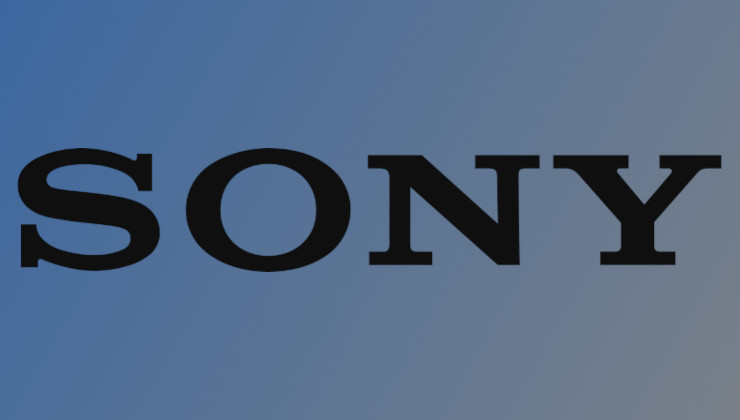Valve are yet again hitting the spotlight for the wrong reasons following the ruling from the EU Commission over geo-blocking, a lawsuit involving game pricing and now the Steam Controller too.
The lawsuit involved Ironburg Inventions (a subsidiary of Corsair Gaming), who have a patent for a game controller that has back paddles and they've held the patent since 2014. According to the press release, Valve lost the case and so "the jury unanimously found that Valve Corp infringed Ironburg’s 8,641,525 controller patent and awarded Ironburg over $4 million" additionally Valve were apparently aware of it and so the infringement was "willful". Due to this, there's a potential for "enhanced damages up to the statutory limit of treble damages" so the $4 million figure is only the beginning.

Any company that wishes to have back paddles, are then required to license the tech from Ironburg Inventions Ltd which is exactly what Microsoft does for their special Xbox Elite Controller.
The Steam Controller (sadly) was discontinued back in 2019. It was my favourite controller, and I still hope they bring out a proper second generation. Perhaps this was a big supporting reason for why they no longer continued with it? Probably not though, since they're now into VR hardware instead where there's likely a lot more monies.
If they do a second generation, perhaps they will be a little bit more careful with licensing next time and I will still happily be first in line if they do another.
Ah, well, fair enough then.That's a way we the society ensure that. It's not at all the only way. For instance, Moderna's development of a Covid vaccine was financed entirely up front by the US government--they didn't spend a dime of their own money and indeed made a profit before they'd ever started manufacturing. Then they were given a patent as well, but I don't see what the point of that was.In chemistry and pharma aren't working either. The fact that a lab creates a vaccine and is not immediately available for every other lab to palliate with a disease, whether that is a solving erectile dysfunction or a pandemic, but rather they can prevent others from doing the same, or getting rich by leasing the patent, is utterly annoying. It could only come from the mind of a psychopath.
I have a problem following your reasoning here, development of a vaccine costs the pharmaceutical company billions. Giving them a time limited monopoly of said vaccine (aka the patent) is how we the society ensures that the pharmaceutical companies does invest these amounts. Talking about psychopathy here is just utter nonsense.
It's kind of an odd approach generally. I mean, most people who defend the patent system for pharmaceuticals concede that the big pharma companies don't really do a whole lot of original basic research--that's mainly public sector and pharma mostly piggybacks off the public sector ideas. What pharma does is lots of clinical trials, which cost a lot of money. OK, fine, for clinical trials to be done, money has to be spent, but what should that have to do with patents? It's a fairly mechanical process that doesn't involve coming up with original ideas, so why should our method of compensating it pretend that it does?
And as a method, it doesn't work terribly well. Vaccines don't typically make pharmaceutical companies a ton of money, so they don't spend that much money developing them. But vaccines are very useful in terms of public health. In fact, in terms of medicines, there is to some extent an inverse relationship between utility and profitability. Palliative treatments are more profitable than cures, since they can be sold again and again.
If you're a fan of "free markets" (which, OK, I'm not), patents are a massive distortion of those whether you're talking about the original Adam Smith et al. sense or the modern sense, since from Smith's perspective they create huge windfall economic rents and from the modern perspective they involve massive government intervention and from both perspectives they represent the literal creation of monopoly for the express purpose of distorting prices.
Those prices can get jacked up especially high because of the nature of medicine--how much will you pay the only person who can save your life? The highest profit will necessarily come at a price-point high enough that many won't be able to afford it. This is cruel and immoral. But there is also a substantial public interest issue. Bad public health has social and economic implications.
So between these issues, leaving it to the (patent-distorted) market to decide just which treatments and vaccines should be pursued is inevitably going to give you perverse outcomes where worse medicines are emphasized over better ones, and the medicines produced are undersupplied and overcharged for, leaving many untreated, and sucking unnecessarily huge amounts of money out of the broader economy, leaving pharmaceutical companies with huge windfall profits.
Those windfall profits are also a huge motivator to falsify the outcomes of clinical trials to make drugs look better and less risky than they are. This has caused tens of thousands of deaths. It would be better to just have companies that do clinical trials, have public agencies that decided which drugs should have trials done, and pay them to do them. The public agency's purpose would be to improve public health, not make a profit from perverse outcomes. So they wouldn't be motivated to avoid cures in favour of palliative treatments, nor to falsify results of clinical trials. Clinical trial companies would compete on price and accuracy. Then the drugs, once approved, could be handed over to generic drug makers who would manufacture them cheaply and, again, in competition rather than with a monopoly. And that's just one possibility. I'm sure there are plenty of other approaches that would be better than what we have for everything except letting big pharma siphon off windfall profits.
I agree completely with you, I believe that pharmaceutical research should be funded by government and the results not patented.
I simply replied back to the argument that companies funding everything in private should immediately release their findings for free or be seen as psychopathic.
Like I said before, the patent system is not at fault here. There needs to be a method for inventors to be able to get rewarded for their invention. Otherwise no one would ever invent things except by accident.
The cost to actually get a patent makes it unavailable for someone making something in their garage. So they have to go to a company most of the time to get it done, and then the company owns it and the inventor usually gets screwed.
They need to change the fees and the process.
Either way, "we put paddles on the bottom of a controller" should not be a patent...
So a 'greater good' thing really shouldn't be patentable, or yes it is fine as long as it is an open patent.
Like I said before, the patent system is not at fault here. There needs to be a method for inventors to be able to get rewarded for their invention. Otherwise no one would ever invent things except by accident.
The cost to actually get a patent makes it unavailable for someone making something in their garage. So they have to go to a company most of the time to get it done, and then the company owns it and the inventor usually gets screwed.
They need to change the fees and the process.
Either way, "we put paddles on the bottom of a controller" should not be a patent...
Yeah it's very strange that Valve wasn't successful in invalidating the patent, or perhaps they never tried that route, very few details of the case so far.






 An idiots guide to setting up Minecraft on Steam Deck / SteamOS with controller support
An idiots guide to setting up Minecraft on Steam Deck / SteamOS with controller support How to install extra software, apps and games on SteamOS and Steam Deck
How to install extra software, apps and games on SteamOS and Steam Deck
See more from me